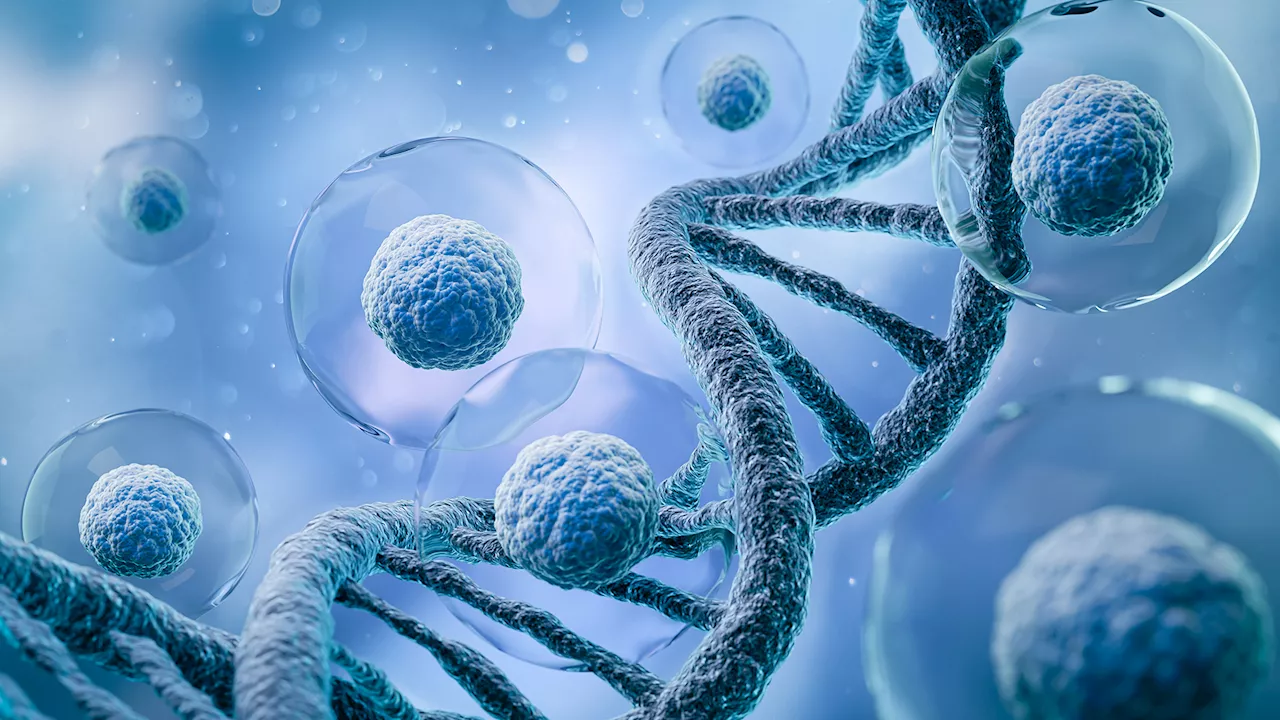Discovery of an appetite-suppressing protein has doubled the potential for new avenues for treating obesity and metabolic disorders in animals and people.
A University of Saskatchewan research team's discovery of the additional health benefits of an appetite-suppressing protein has doubled the potential for scientists to find new avenues for treating obesity and metabolic disorders in animals and people.highlight their discovery of the lipid-lowering effects of nesfatin-1-like peptide . This newly identified peptide -- or small protein -- is a close relative of nesfatin-1 , which regulates feed intake and body weight.
"We are far away from bringing these findings to bedside," said Unniappan."But we now have additional multiple targets available that could be explored for lipid disease treatment and therapeutic advancements." Unniappan and his research team have been at the forefront of nesfatin-1 research. Discovered in 2006 by a group of researchers in Japan, nesfatin-1 was initially recognized for its ability to suppress food intake.
Discovering such results -- that administering NLP reduces lipid levels, while disrupting its production alters lipid metabolism -- reinforces its pivotal role in metabolic regulation. "It's beautiful to know the same peptide can achieve so many meritorious health effects, that in combination have the potential to help both human and animal patients," said Unniappan.
Diet And Weight Loss Obesity Diseases And Conditions Alzheimer's Research Gene Therapy Medical Topics Cholesterol
United Kingdom Latest News, United Kingdom Headlines
Similar News:You can also read news stories similar to this one that we have collected from other news sources.
 Researchers discovery family of natural compounds that selectively kill parasitesAn international team led by researchers at the University of Toronto has found a family of natural compounds with potential as new and more effective treatments for parasitic worms. The compounds stall the unique metabolic process that worms use to survive in the human gut.
Researchers discovery family of natural compounds that selectively kill parasitesAn international team led by researchers at the University of Toronto has found a family of natural compounds with potential as new and more effective treatments for parasitic worms. The compounds stall the unique metabolic process that worms use to survive in the human gut.
Read more »
 Researchers shed new light on carboxysomes in key discovery that could boost photosynthesisA research team led by the Hong Kong University of Science and Technology (HKUST) has discovered how carboxysomes—carbon-fixing structures found in some bacteria and algae—work.
Researchers shed new light on carboxysomes in key discovery that could boost photosynthesisA research team led by the Hong Kong University of Science and Technology (HKUST) has discovered how carboxysomes—carbon-fixing structures found in some bacteria and algae—work.
Read more »
 Researchers make a surprising discovery: Magnetism in a common material for microelectronicsNickel monosilicide (NiSi) is widely used to connect transistors in semiconductor circuits. Earlier theoretical calculations had incorrectly predicted that NiSi was not magnetic. As a result, researchers had never fully explored magnetism in NiSi.
Researchers make a surprising discovery: Magnetism in a common material for microelectronicsNickel monosilicide (NiSi) is widely used to connect transistors in semiconductor circuits. Earlier theoretical calculations had incorrectly predicted that NiSi was not magnetic. As a result, researchers had never fully explored magnetism in NiSi.
Read more »
 Scientists Reveal Hidden Indicator of Future Weight GainThe discovery could be of 'great clinical value' for future weight-loss programs, the researchers say.
Scientists Reveal Hidden Indicator of Future Weight GainThe discovery could be of 'great clinical value' for future weight-loss programs, the researchers say.
Read more »
 This autonomous DNA nano turbine could redefine drug deliveryResearchers utilized DNA origami to engineer nanoscale turbines with potential applications in drug discovery.
This autonomous DNA nano turbine could redefine drug deliveryResearchers utilized DNA origami to engineer nanoscale turbines with potential applications in drug discovery.
Read more »
 Researchers target neurogenesis in new approach to treat Parkinson's diseaseResearchers have found a way to better control the preclinical generation of key neurons depleted in Parkinson's disease, pointing toward a new approach for a disease with no cure and few effective treatments.
Researchers target neurogenesis in new approach to treat Parkinson's diseaseResearchers have found a way to better control the preclinical generation of key neurons depleted in Parkinson's disease, pointing toward a new approach for a disease with no cure and few effective treatments.
Read more »
